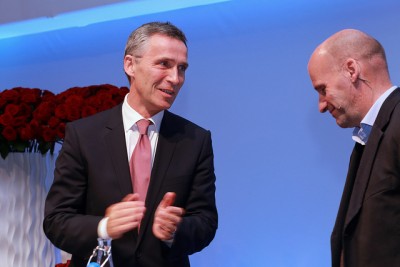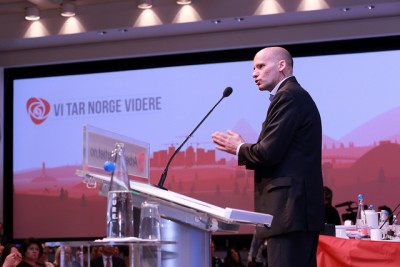Geir Lippestad, the Norwegian defense attorney who represented terrorist and mass murderer Anders Behring Breivik last year, has been back in the news over the past week after releasing a new book and making a political appearance as a local Labour Party leader. He doesn’t think it was any lack of security or poor police preparedness that allowed Breivik’s terrorist attacks to occur – rather, it was the nation’s failure to take Breivik’s ultra-right-wing ideology seriously and see it as the threat it was.

Lippestad has been called “the devil’s advocate” in the literal sense of the phrase, after agreeing to defend the radically anti-Islamic young man who killed 77 persons during a three-hour bombing and shooting spree on July 22, 2011. Breivik chose Lippestad even though the attorney had been a longtime member and local leader of the Labour Party that Breivik had attacked, because Lippestad earlier had defended a neo-Nazi in Oslo who’d murdered a Norwegian-African teenager.
Lippestad thought hard about taking on the tough assignment but has said he was rather quickly persuaded by his wife, a nurse, who stressed that Breivik had as much right to counsel as her patients do, no matter what they’ve done. Lippestad ended up winning praise for how he handled the job, not least during Breivik’s long and agonizing trial that dredged up horrific memories for his mostly young targets and his victim’s families.
Lippestad’s new book has also drawn good reviews, for its descriptions of how lonesome he felt when he couldn’t take part in the national mourning that followed what his client had done but mostly for its examination of a nation’s values and its need to come to terms with multi-culturalism. Lippestad believes that if Norwegians don’t deal with the ultra-right-wing thoughts that Breivik himself claims drove him to his murderous actions, they can easily experience terrorism again.

“It’s time we start a new, fundamental debate on values,” Lippestad told reporters when the book, the title of which translates to “What we can stand for,” was launched. “Otherwise I’m afraid we’ll be standing amidst the ruins after a new, major terrorist attack and ask ourselves, ‘How was this possible? How could this happen in little Norway, this country we love so much?'”
Instead of continuing to hinder Breivik’s ongoing writings from his prison cell, Lippestad believes “we must look at what he and his audience are writing, listen to their arguments and develop counter-arguments. Then we can hinder others from following in his footsteps.”
Lippestad also exhibited some of his “devil’s advocate” work when Labour Prime Minister Jens Stoltenberg invited him to address the Labour Party’s national meeting over the weekend. Lippestad, who leads Labour’s local chapter in the Nordstrand district where he lives, brought up the question of values again, and asked his Labour colleagues to consider how the itinerant beggars who’ve been arriving in Oslo are being treated.
“We have read in the papers about how Roma people have been sleeping under Sinsenkrysset (a highway intersection in Oslo) this winter, in paper boxes,” Lippestad said. “What would it have done with us as a society, if we discovered one cold morning that 40 people had frozen to death under Sinsenkrysset? How would we have been able to talk to our children about human dignity and equality after something like that?”
His rhetorical question wasn’t answered. Lippestad himself merely noted that people are different, and that differences present challenges.
Views and News from Norway/Nina Berglund
Please support our news service. Readers in Norway can use our donor account. Our international readers can click on our “Donate” button:

